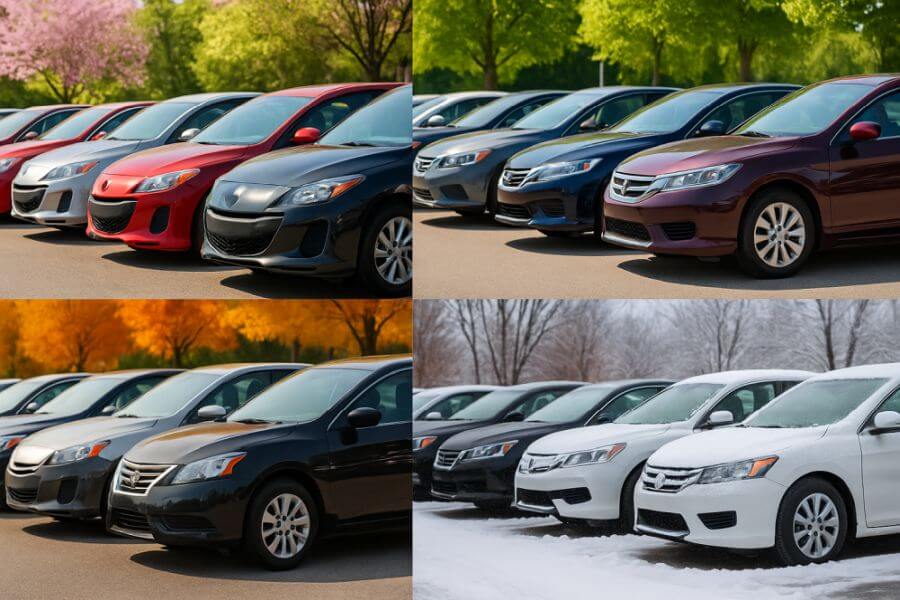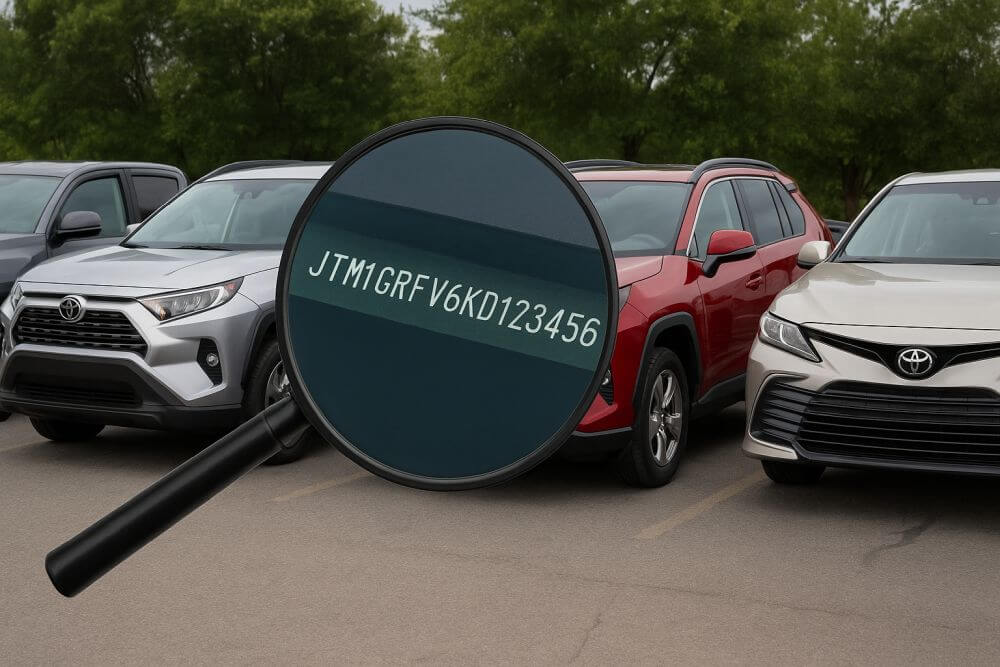Understanding how seasonal trends impact used car values is crucial for both buyers and sellers in the automotive market. Car values can fluctuate based on various factors, including the time of year. For those involved in used car research or ownership, being aware of these trends can help in timing sales or purchases to get the best value. Whether you’re looking to sell your car or purchase a pre-owned vehicle, conducting a VIN check free is a vital step in ensuring you make the most informed decision. This guide will explore how different seasons affect used car prices and offer strategies to optimize your buying or selling efforts.

When it comes to buying or selling a used car, timing is everything. Seasonal trends can significantly impact the market, influencing car values and availability. Understanding these trends can help you get your car value estimate accurately and make strategic decisions regarding your vehicle. In this article, we’ll delve into the specifics of seasonal car value trends and how you can leverage this knowledge for better financial outcomes.
How Seasons Affect Used Car Values
Seasonal trends in the automotive industry are driven by consumer behavior, weather conditions, and economic factors. Here’s a breakdown of how each season typically impacts the used car market:
Spring: A Time for New Beginnings
As the weather warms up, consumers often feel the urge to make changes, including upgrading their vehicles. Spring is a popular time for car sales, which can drive up demand and, consequently, prices. Buyers may face stiff competition, but sellers can take advantage of the higher demand to maximize their returns.
- Increased buyer interest due to tax refunds and better weather.
- Higher prices due to competitive demand.
- Good time to sell convertibles and sports cars.
Summer: Peak Buying Season
Summer is synonymous with road trips and vacations, which naturally drives up the demand for reliable vehicles. As a result, summer months often see a spike in car sales, particularly for family-friendly models and SUVs.
- High demand for SUVs and family cars.
- Prices tend to peak due to increased buyer activity.
- A good period to sell if you want top dollar.
Fall: A Buyer’s Market
As summer wanes, the market begins to cool down, making fall an optimal time for buyers. Dealers are keen to clear out inventory before the year’s end, often leading to discounted prices and attractive deals.
- Lower prices as dealers offer discounts to clear inventory.
- Less competition among buyers.
- Ideal time for purchasing a used vehicle.
Winter: A Slow But Strategic Season
Winter months usually see a dip in car sales due to harsh weather and holiday spending priorities. However, this can be a strategic time for buyers looking for bargains, as sellers are more motivated to make a sale.
- Lower prices due to decreased demand.
- Potential for great deals on older models.
- Challenging weather conditions may deter some buyers.
The Role of VIN Decoding in Understanding Car Value
Decoding a VIN is an essential step in assessing a used car’s value. A Vehicle Identification Number (VIN) provides a comprehensive history report, revealing critical details about the car’s past, including any accidents, title issues, or previous sales. This information is invaluable for those looking to understand a vehicle’s true worth.
Using a VIN decoder can help you verify the car’s specifications and history, ensuring you pay a fair price or receive a reasonable offer when selling. For a reliable and free tool, consider using VinCheckPro’s free VIN decoder to get a detailed report on any vehicle.
Timing Your Purchase or Sale for Maximum Value
Knowing when to buy or sell a used car can make a significant difference in the price you pay or receive. By understanding seasonal trends and utilizing VIN decoding tools, you can strategically plan your transactions to align with market conditions, maximizing your financial advantage.
Frequently Asked Questions
What is the best time of year to buy a used car?
Fall and winter are generally the best times to buy a used car due to lower prices and less competition. Dealers offer discounts to clear out inventory, making it a buyer’s market.
How does a VIN decoder help in car valuation?
A VIN decoder provides detailed information about a vehicle’s history, including past accidents, ownership changes, and title issues. This data is crucial for assessing the car’s true value and ensuring a fair purchase price.
Why do convertible prices rise in spring?
Convertible prices often rise in spring due to increased demand as the weather improves. Buyers are more interested in open-top driving experiences, leading to higher prices during this season.
Are there specific months that are better for selling certain types of cars?
Yes, spring and summer are ideal for selling convertibles and sports cars, while fall is better for family cars and SUVs due to shifting consumer priorities and seasonal demand changes.
How can I determine the best price for my used car?
Utilize resources like VIN decoding and online valuation tools to get an accurate estimate of your car’s worth. Factor in seasonal trends and market conditions to set a competitive price.

